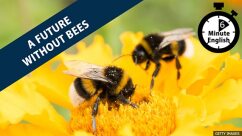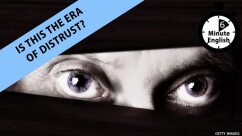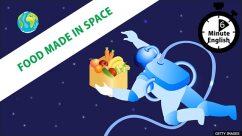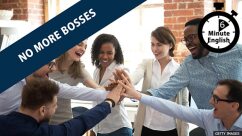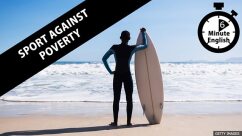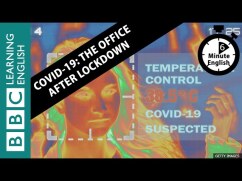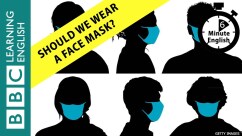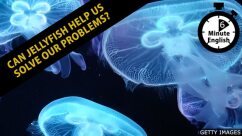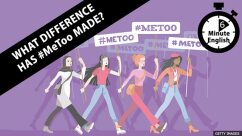drivingonthefreeway.pdf
I'm your host, Dr.
Jeff McQuillan, coming to you from the Center for Educational Development in
beautiful Los Angeles, California.
Today's topic is going to be driving on the freeway. Let’s get started.
[start of story]
Driving in a big city like L.A. can be very difficult. It sometimes feels like I'm doing
battle just to get to the grocery store. What is it about getting behind the wheel
that brings out people's aggressive side? The most mild-mannered driver
becomes crazy when they get on the road.
In L.A., people rely on the freeway to commute to their jobs or just to get around
town. I think driving on the freeway has its good and its bad. On the one hand,
there are no stoplights and the speed limit is over 55 miles per hour so you can
get somewhere quickly. On the other hand, there are drawbacks, too. People
like to gun their engines and cut off other cars to get ahead. If you’re driving in
the passing lane, for example, you’d better be driving very fast, since most
people are speeding. With all of these speeding cars, it’s not unusual to see a
pileup every day of the week!
As an alternate to the freeway, I sometimes take surface streets. Of course,
surface streets have their drawbacks, too. If you have a long commute to work or
school, it can take you a long time to get there. There are a lot of stop signs,
stoplights, and crosswalks. And, people sometimes tailgate if they think you're
not going fast enough. Now that I think about it, there's sometimes even more
congestion on surface streets than on the freeways!
It’s tough living in L.A. unless you never leave your house!
[end of story]
Our story begins when I say that, “Driving in a big city like L.A.” – Los Angeles –
“can be very difficult.” “It sometimes feels like I'm doing battle.” “It sometimes
feels like” – “it appears to me,” “it seems” – that I'm doing battle. “To do battle”
(battle) usually means to fight physically, or perhaps psychologically, with
another person. “To do battle” is a phrase we would associate with the army, with
a war, for example. But here, it just means I'm battling against other drivers – not
physically, of course.
I say that “It sometimes feels like I'm doing battle just to get to the grocery store”
– the store where I buy my food. “What is it about getting behind the wheel that
brings out people's aggressive side?” “To get behind the wheel” (wheel) means
to drive a car or a truck. You could say, “If you're going to drink alcohol, don't get
behind the wheel,” meaning don't drive. The “wheel” here refers to the “steering
(steering) wheel” which is the round thing you turn to move the car left and right.
I asked the question, “What is it about getting behind the wheel that brings out
people's aggressive side?” “What is it about,” is a common way of saying, “Why
does this happen?” We use it when we're not really sure what the answer to the
question is. We really don't know. “What is it about getting behind the wheel that
brings out,” or that gets people to show, “their aggressive side.” “To be
aggressive” (aggressive) means, usually, to be very forceful, to be very strong in
a way that almost seems like you're trying to start a fight. “To be aggressive” is to
move with force, with determination, with strength. The aggressive side of people
comes out when they are driving on the freeway. “The most-mild mannered
driver,” I say, “becomes crazy when they get on the road.” A “driver” (driver) is a
person who drives a car. “To be mild-mannered” means to me very calm –
someone who's not likely to start a fight, someone who's very peaceful. I say that
“The most mild mannered driver becomes crazy when they get on the road” –
when they start driving. So, people who are normally calm, when they get into the
car and start to drive, they seem to go crazy.
“In L.A., people rely on,” or depend on, “the freeway to commute to their jobs or
just to get around town.” “To commute” (commute) means to travel from one
place to another, usually between your home and where you work. We use the
word “commute” when talking about going to and from work. Some people
commute in their cars. In some cities, people commute on a subway. It depends
on where you live. In L.A., people use the freeway to commute.
“I think driving on the freeway,” I say, “has its good and its bad.” “Its good and its
bad” means its good side and its bad side. There are positive things and there
are negative things about driving on the freeway. A “freeway” is a road that
doesn't have any stop signs or stoplights usually, where cars are driving much
faster than on the other roads that are in a city.
I start with the good things. I say, “On the one hand.” That phrase “on the one
hand” is used when you are going to give two sides to some story. You're going
to talk about two different things which may contradict, or be opposite of each
other. “On the one hand there are no stoplights.” “Stoplights” are red, green, and
yellow lights that tell you whether you can go and continue driving, or you must
stop. “There are no stoplights on the freeway and the speed limit is over 55 miles
per hour.” The “speed limit” is the maximum or highest speed that a car can drive
on a certain road. In most American cities, the speed limit on the freeway is
either 55 or 65 miles an hour. The speed limit on the streets in the city that are
not freeways is usually much less – maybe 30, 35 miles per hour.
“On the other hand,” I say – and I'm going to give the negative things about
freeways – “there are drawbacks, too.” A “drawback” (drawback) is a negative
quality, a disadvantage of something, something that is not good that you don't
want. The drawback of driving on the freeway, or at least one of them, is that
people like to gun their engines. “To gun (gun) your engine (engine)” means to
suddenly start driving very fast. Your engine is the same as your motor. It's the
piece of machinery that makes your car go, causes your car to move. “To gun
your engine” means to suddenly go very fast in your car.
Another disadvantage of driving on the freeway is that people cut you off. I say,
“People cut off other cars to get ahead.” “To cut someone off” is a two-word
phrasal verb meaning to move your car right in front of another car, usually so
the other car has to slow down and you have to let that person come in front of
you. I say that, “If you're driving in the passing lane, you'd better be driving very
fast.” The “passing lane,” sometimes called the “fast lane,” is the lane usually
that's farthest to the left. A “lane” is just a part of the freeway. Freeways in Los
Angeles usually have two, three, sometimes four or even five lanes where cars
are driving next to each other. If you want to “pass” someone, that is, to go in
front of someone and be traveling in front of them, you should go to the first lane
on the left – the lane that is farthest to the left. That's the passing lane or the fast
lane.
On L.A. freeways, most people are “speeding.” “To speed” (speed), as a verb,
means to drive very fast, to be driving faster than what you are supposed to be
driving – faster than the speed limit. I say, “With all of these speeding cars, it's
not unusual” – it's not uncommon – “to see a pileup every day of the week.” A
“pileup” (pileup) is a car accident involving more than two cars, often three, four
perhaps even 10 cars.
I say that, “As an alternate to the freeway, I sometimes take surface streets.” An
“alternate” or an “alternate route,” would be a different way of doing something, a
different choice, a different option. In this case, the different option, instead of the
freeway, would be to take or to drive on “surface streets.” “Surface (surface)
streets” are roads that are not like a freeway – roads that have stop signs and
places where you have to stop or that you have to drive more slowly. I say that
surface streets have their drawbacks too. “If you have a long commute to work or
school, it can take you a long time to get there.” “There are lots of stop signs,”
which are the red signs that have the word “stop” on them, “stop lights,” which
we've explained already, and “crosswalks.” A “crosswalk” (crosswalk) – one
word – is a place for people who are walking to cross a street, to go from one
side of the street to another. And in most places, if there is someone in a
crosswalk, you, as the driver, must stop.
“People sometimes tailgate,” I say, “if they think you're not going fast enough.”
“To tailgate” (tailgate) means to drive right behind another car, too close for
safety. That is, you’re driving so close that you could easily cause an accident.
People do this here in L.A. when they think someone is driving too slowly, in
order to get them to either drive more quickly or to move to one side so that the
car behind them can go ahead.
I say, “Now that I think about it,” now that I think about the situation more
seriously, “there’s sometimes even more congestion on surface streets than on
the freeways.” “Congestion” (congestion) is when you have a large crowd of, in
this case, cars – a large group of cars that makes you have to slow down – that
causes you not to be able to move very quickly. “Congestion” on the freeway
would be lots of cars having to drive slowly because there are too many cars on
the freeway.
Now let’s listen to the story, this time, at a normal speed.
[start of story]
Driving in a big city like L.A. can be very difficult. It sometimes feels like I'm doing
battle just to get to the grocery store. What is it about getting behind the wheel
that brings out people's aggressive side? The most mild-mannered driver
becomes crazy when they get on the road.
In L.A., people rely on the freeway to commute to their jobs or just to get around
town. I think driving on the freeway has its good and its bad. On the one hand,
there are no stoplights and the speed limit is over 55 miles per hour so you can
get somewhere quickly. On the other hand, there are drawbacks, too. People
like to gun their engines and cut off other cars to get ahead. If you’re driving in
the passing lane, for example, you’d better be driving very fast, since most
people are speeding. With all of these speeding cars, it’s not unusual to see a
pileup every day of the week!
As an alternate to the freeway, I sometimes take surface streets. Of course,
surface streets have their drawbacks, too. If you have a long commute to work or
school, it can take you a long time to get there. There are a lot of stop signs,
stoplights, and crosswalks. And, people sometimes tailgate if they think you're
not going fast enough. Now that I think about it, there's sometimes even more
congestion on surface streets than on the freeways!
It’s tough living in L.A. unless you never leave your house!
[end of story]
We thank our mild-mannered scriptwriter for this wonderful script. I speak, of
course, of Dr. Lucy Tse.
From Los Angeles, California, I'm Jeff McQuillan. Thank you for listening. Come
back and listen to us again right here on ESL Podcast.
GLOSSARY
to do battle – to fight; to struggle against someone or something, physically,
mentally, or emotionally
* Eileen did battle with her computer because she didn’t know how to use the
new features on the updated program.
to get behind the wheel – to drive a car or other vehicle; to be the driver in a car
or vehicle
* After an evening at the bar, Teodoro got behind the wheel of his car, but his
friend told him he had had too much to drink and drove him home instead.
aggressive – forceful; with a harsh attitude, as though wanting to start a conflict
* Rosalina is an aggressive person who always gets into arguments.
mild-mannered – meek or calm; unlikely to start a conflict
* Dwight is mild-mannered and rarely shouts or gets angry.
to commute – to travel to a place one goes to every day or every week
* Hye commutes to the local college every Monday, Wednesday, and Friday to
attend classes.
stoplight – red light or traffic light; a device that uses three electric, color lights to
control street traffic at an intersection (the point where two or more roads cross)
* The stoplight turned red, so Micah stopped the car.
speed limit – the maximum speed a car or other vehicle can travel by law on a
specific road; the fastest speed a car or other vehicle is allowed to drive by law
* The policeman stopped the car because it was driving faster than the speed
limit allowed.
drawback – disadvantage; a quality or result that is unfortunate or unwanted
* As much as Alexia liked having the day off from work, one drawback was that
she needed to do housework now that she had the time.
to gun (one's) engine – to suddenly start driving very; to suddenly give a car or
vehicle the most fuel possible to get it to move as quickly as possible
* Roberto gunned his engine and quickly drove past the other cars.
to cut off – to move one’s car directly in front of another car, leaving a small
amount of empty space in between both cars and usually forcing the other car to
slow down
* The woman in the small red car cut off the driver of the large white truck, forcing
him to brake so that he would not hit her car.
passing lane – the fast lane; a lane or path on the road that drivers temporarily
use to drive ahead of a car in a slower, regular lane
* Bernice wanted to drive past the slow car in front of her, so she entered the
passing lane and quickly got around the other car.
to speed – to drive very fast; to drive faster than one is allowed to drive
* The man in the black sports car sped pass a school and got a ticket for driving
too fast.
pile up – a car accident involving many cars that crash into each other
* Four cars were involved in the pile up, but thankfully, no one was seriously hurt
in the accident.
alternate – another option; a second option used to avoid a first option
* When the road Tyrell usually used was blocked off, he took another road as an
alternate.
surface street – a slower road that passes through a city or town; not a freeway
or highway
* The surface streets cut through a residential section of town with many houses.
crosswalk – a path that crosses a street, which is used by people wanting to
safely walk from one side of the street to the other
* Jolene needed to cross the road, so she walked to the crosswalk and walked
across.
to tailgate – to drive directly behind another car without leaving much space in
between, a form or unsafe driving
* The car tailgating Ferdinand’s car was so close that it hit the back of his car
when Ferdinand stopped quickly.
congestion – a large crowd that prevents easy movement
* There is a lot of congestion on the roads today, so it will take longer to get to
work than usual.
